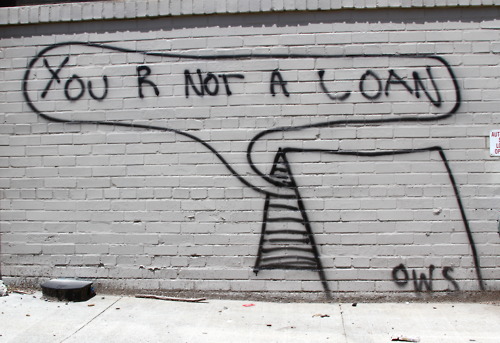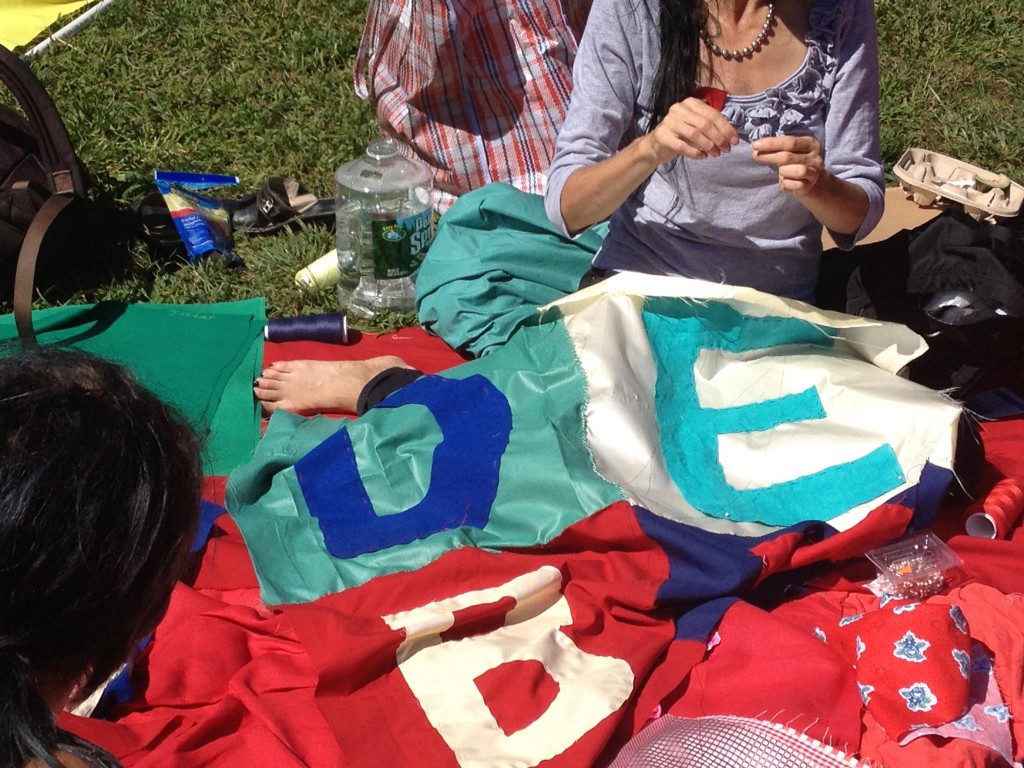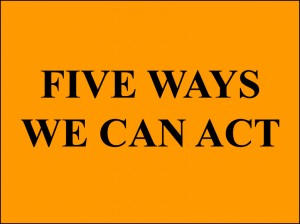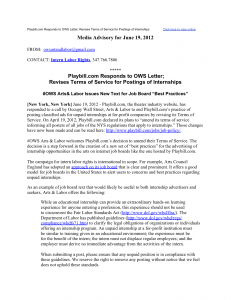Nearly everyone is affected by debt, from recent graduates paying hundreds of dollars in interest on their students loans every month, to working families bankrupted by their medical bills, to those taking out payday loans at 400% interest to cover basic living costs, to the teachers and firefighters forced to take pay cuts because their cities are broke, to countries pushed into austerity and poverty by structural adjustment programs.
There is a movement building across the country of debt resistance. Many are mobilizing against the condition of debt, and the servitude and destruction that goes along with it. As part of this mobilization, people have begun to share their debt stories. These conversations make us realize that it is the system that is responsible for our shared condition. We are not alone.

Another way of looking at debt in contrast to the feelings of financial paralysis it causes, is the idea of “indebtedness.” Not all debt is bad. There are also positive ways that debt that functions in society—being indebted can create social bonds and manifest itself in relationships through love, care and gratitude. (i.e. think of the debt you owe to your friends or your parents.)
In a gesture of shared storytelling, Arts & Labor is initiating DEBT SQUARES, a community quilting project. We will be bringing this project into town squares, parks, and other spaces around New York City, inviting people to sew together, discuss, and visualize our shared condition of debt. The first sessions will begin in Washington Square Park on September 15th and in Foley Square on September 16th.

For those that can’t join us, we invite you to tell your debt story by making your own DEBT SQUARE that will be added to the quilt. Send us your square!
Arts & Labor
888 Newark Ave.
Studio #235
Jersey City NJ 07306
To contribute to this project please consider the following guidelines:
• SQUARES should be approx. 20” x 20”
• Use fabric that is fairly durable
• We have created a suggested color logic for you to consider while building your debt square:
RED = Student Debt / Education
YELLOW = Mortgage / Housing
GREEN= Credit Card / Commercial
BLUE= Medical
RAINBOW, PASTELS & PATTERNS = Love / Care / Friendship / Family, etc.
Note: These are just suggestions! Feel free to ignore this entirely and make your DEBT SQUARE square your own.





